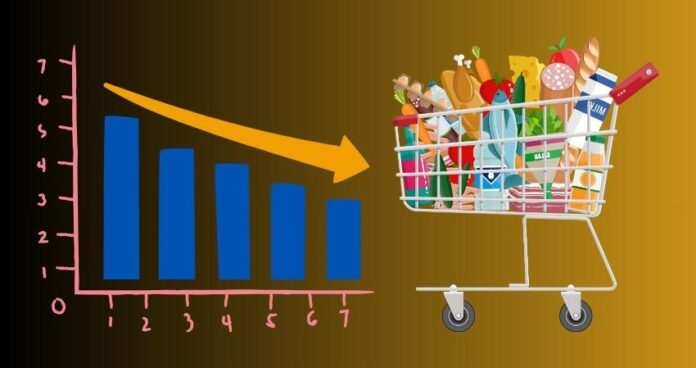Pakistan’s headline inflation, measured by the Consumer Price Index (CPI), slowed to 4.1% year-on-year (YoY) in December, down from 4.9% in November and 29.7% in December 2023, according to the latest data released by the Pakistan Bureau of Statistics (PBS).
Average inflation for the first half (July-December) of fiscal year 2025 was recorded at 7.22%, significantly lower than the 28.79% average during the same period last year.
Key food items with notable price increases in December included potatoes (12.42%), fresh fruits (8.84%), and vegetable ghee (5.42%). Conversely, chicken prices dropped by 13.06%, while onions fell by 4.91%. Non-food items such as solid fuel (4.98%) and household textiles (4.61%) saw price increases, while electricity charges decreased by 5.68%.
For the year-on-year comparison, items like pulse gram (54.25%) and gram flour (52.15%) registered significant increases, while wheat (-33.82%) and wheat flour (-33.77%) saw substantial declines. Among non-food items, motor vehicle tax surged by 168.79%, while electricity charges decreased by 9.44%.
Urban CPI inflation stood at 4.4% in December 2024, down from 5.2% in November and 30.9% in December 2023. Rural CPI inflation decreased to 3.6% in December, compared to 4.3% in November and 27.9% in December 2023.
Sensitive Price Index (SPI) inflation also eased, dropping to 4.2% in December from 7.3% in November and 35.3% in December 2023.
The Wholesale Price Index (WPI) inflation declined to 1.9% in December, compared to 2.3% in November and 27.3% in December 2023. The PBS also reported that non-food, non-energy urban inflation decreased to 8.1% year-on-year, with rural non-food, non-energy inflation down to 10.7%.
The PBS data also highlighted a sharp rise in motor vehicle taxes, which surged by 169% due to increased government levies. Despite an 8% growth in nominal GDP, this is significantly below the Federal Board of Revenue’s (FBR) projection of 16% growth, adversely affecting revenue collection. The FBR attributed its collection shortfall of Rs386 billion to slowing inflation, weak enforcement, and limited growth in large-scale industries and imports.
PBS, which collects inflation data from 35 cities and 27 rural centers, covering 600 goods, stated that these trends reflect stabilization in food prices but underscore the challenges of sluggish economic growth.
Last week, the Ministry of Finance stated that inflation may remain in the range of 4-5%, aligning with the federal government’s expectations.
This slowing inflation, lower than projections of the State Bank of Pakistan (SBP), has also provided room to further reduce the policy rate without endangering fiscal and external stability. The SBP is set to meet later this month to review the policy rate, which currently stands at 13% following successive cuts from 22%.
Businesses have called for further reductions in policy rate to stimulate growth, citing high energy costs, policy uncertainty, and a challenging economic environment as obstacles to expansion.




